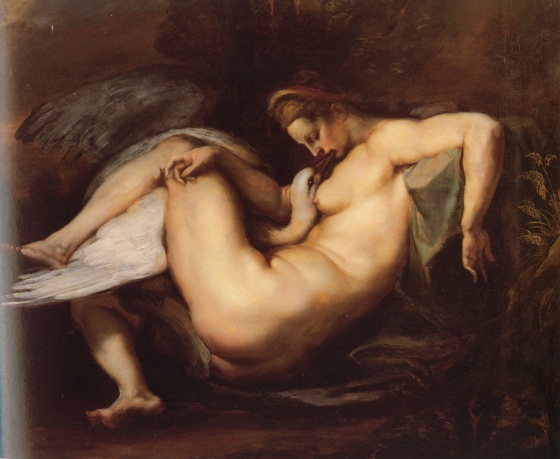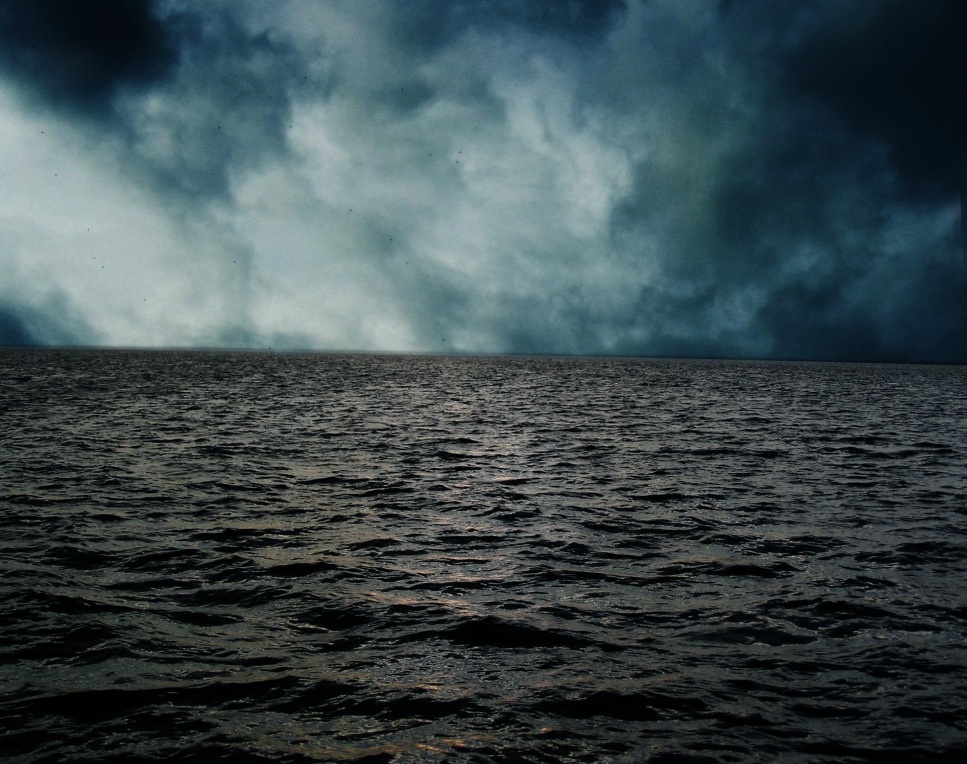I am the educated one
Who wants to be dumb.
The one clad in rubies
Dreaming of rags.
My eyes bleed tears
At the threshold
Which I will not overstep.
I throw dying stems at pearl graves
And weep, accommodating self-solace
Yet I would not bleed for them.
I accustom myself with Death,
While the Other goes with him.
It lives in the silence
Of latticed windows
Shut tight and barred
From the inside.
I brew and breathe
Disease.
Offer myself for the woodpile,
And light the flames
In mad reverence.
I am against it
Whatever it is.
Not enough flesh
to bend to the pages of history,
Too much flesh
to resist devouring the paper,
Which greater men might have folded
Into palaces of papered walls.
It’s too late – do not regurgitate.
You made your bed,
And it is made of needles.
Wasted eyes, fashioned of better mettle,
Nobody told you glass never saw reality.
Breast plugged to the amplifier –
For God’s sake – speak!
Why not?
Too afraid?
Too ignorant.
I, a lake swan, lay idle
Admired by a man on a blue bench
Here I dive and plummet,
There I sign a desperate wail
And engorge my eyes, trip and flash feathers
Contort my body to his desire
Until he drifts near,
Vaguely tossing a crumb or two,
Morsels I break my beak on the ground to find.
He smiles pity,
Walking on,
Upturning a cotton trench.
I had better douse myself in his blood,
Devour his hand in place of bread,
Leap upon him,
Leda no more.
Scratch his skin, scar his mind,
Take his body
And swallow it whole.

So once again I return with… ta-dah! Another poem. Sorry, my followers, it must be rather boring only reading poetry (especially since I know half of you are here for the game walkthroughs!). I do apologise. A lot. (Sorry). Anyway – so this is ‘Leda,’ and as I’ve been worried about how accessible its message is… I thought I would write a very long, and hopefully not too dull, note on what exactly was its inspiration.
Quite a large amount of research and background reading went into this poem, making it a complicated mix of arguments against two types of women that exist today in our (almost) pro-egalitarian Western society, two types which I have tried to comprehend, but can’t, for the fact that they unknowingly add to the foundations of the anti-feminist sector. It all started with a book called The Magic Toyshop by Angela Carter (which, by the way, is a brilliant quirky book, an even better feminist book, and well worth a read). It brought an interesting theory to light, one which Carter herself was very interested in – demythologisation. Carter expressed through her characters the idea that many feminist critics have been toying with for years, that blame for female subjugation up until now has been, like all things, an accumulative project of society, and that as much as anything else, sexism and gender stereotypes can be very deeply attributed to the influence of myths. Myths have been used for eons to propose scenarios to entertain, and more importantly, to educate, but not many people put two and two together and realise that very often they have become the models by which society regarded the right and wrong sides of culture, sexuality and the behaviour of the genders.
Just look at Prometheus, who was eternally punished by Zeus for attempting to steal the power of fire from the gods – ergo, warnings against hubris, overreaching, telling people to pipe down and just worship the clouds because science, invention and innovation was not socially acceptable and seen as ‘tampering’ with higher powers. It’s the same kind of theme that reappeared in the literature of the Renaissance, such as Marlowe’s Dr Faustus, and later, during the scientific revolution, in novels such as Shelley’s Frankenstein. It’s all very interesting stuff, and I know it opened my eyes to the problem of social myths in the twenty-first century, and how we can, as Carter offered, deconstruct them and realise that there are no constraints on gender. Therefore we can freely think, ‘this unspoken social rule tells me, as a woman, I cannot do this, but that’s a big, fat lie. So it’s a given that I cannot earn more than my husband (unfortunately, there are still people stuck in the dark ages), or decorate my daughter’s bedroom blue and my son’s pink because the colours have already been ‘assigned’ to the appropriate sex.’
I’ll mention here shaving armpits even though I personally don’t agree that a woman who does not shave is being liberated from society’s expectations – for me it’s more a question of personal hygiene, and if I could get my partner to shave his, I would. But this is the thing, he would turn around and say, ‘Are you mad? That’s a feminine thing.’ You see – gender stereotyping works both ways. My partner limits his own identity every day by doing things, stopping and, with a grimace, saying, ‘Ugh, that was so girly.’ I try and I try, ladies and gentlemen – one day, he will cry in front of me without making a face like a baby that just ate a jalapeno.
So, back to the point. Carter addresses demythologisation – what she also addresses is the Greek myth of Leda and the swan, where, depending on the version, Leda is either raped by Zeus, disguised as a swan, or willingly submits. But here’s the catch – either way, female subjugation. Zeus is triumphant, the myth ends, with or without Leda’s permission, as Zeus’ achievement of copulating with a beautiful human, though at least in the version where she is raped you could argue that the myth at least attempts to show that Leda has a mind of her own. In the other one, well, hey – Zeus is the big, almighty guy with the huge penis. Pile on, girls.
But I’m not about to say that I’m in any way against men, or against having sex with men (obviously, my partner is male). I don’t look at the version where Leda submits and think it’s a horrible piece of literature because I see Leda being ‘defiled’ by a man and being happy about it. What I do see is an apparent attempt, by the writer, to portray masculine dominance, but that’s a different thing entirely. There are, however, women who would see the former – and I know a good few from university alone, where there are only 10,000 students. These are the women who, if they were Leda, would stab Zeus with a knife and chop off that penis. They are the extreme feminists, and purely for lack of a better word, they are man-haters. They are the ones who reject the notion that men deserve any rights after, and I sadly quote rightly from a real member of a feminist group at university, ‘what they did to silence us.’ The ones who sit in closed circles, whispering venom. I know many of them who changed their sexuality only because they wouldn’t touch a man’s body with a ten-foot pole.
It’s a shame, but not an unsurprising outcome, that the growth of feminism has given birth to this very extreme branch, but as I have said all these years: if they are not interested in male rights as well as female, they do not uphold the unconditional foundation goal of feminism. Therefore, regardless of how they identify themselves, they are not true feminists. It’s as simple as that – the banner of feminism does not fly with an impaled male organ at its side, it is a banner of equality, a banner that proposes the end to patriarchy – not the rise of a matriarchy.
…*sigh* And then, well, where do I begin? We come to the portion of female society who are determined to remove themselves from feminism altogether. Granted, these misinformed women have gleamed only fragments of the story, they see only the extremists – because only bra-burning madwomen are newsworthy – and assume they have ‘feminism’ as a concept figured out.
‘Oh, it’s angry and violent, and frankly just cruisin’ for a bruisin’, Marjorie.’
So they do nothing at all, sometimes they let themselves be stereotyped and limited by the men and women around them. My grandmother turned out to be such a woman, a wonderful and kind lady, but born in an utterly different era, which cam pre-installed with a certain sexist mindset, who never saw what was wrong with allowing her husband to confine her to the kitchen sink. Many of these women, like my grandmother, are circumstantial anti-feminists, others have simply not taken the time to educate themselves in fact and fiction – which is all of our responsibility before we open our mouths and speak. Worst of all, some of them, when asked, say, ‘I am not a feminist.’
I see post after post on Tumblr every day – another woman holding up a notepad that reads ‘Against Feminism and Proud.’ It truly makes me squirm. I want to shake them, until their brains rattle, until they understand that, yes, there are extremists, yes, some women act contradictory in the name of feminism, but they do not constitute the entire body (nor would I even want to call some of them feminists). Moreover the women who reject feminism, based on what they don’t agree with, themselves destroy their freedom of right to claim their own reasons for being a feminist. You always have a right – a right to fight for equality and, true, a right also not to fight. But why would you choose otherwise? Sexism still exists, in and outside the workplace, for both sexes, and it can, and must, be corrected.
Feminism exists to give both sexes the opportunities they deserve, the identities they want without the need for masks and performance because we are perpetually being conditioned to believe a man can never think without sexual goals, cannot be a feminist and still respected by his male peers, and a woman cannot be anything other than a housewife. Feminism is what tells us that we are all more than the models to which we are confined. In an ideal world, masculinity and femininity would dissolve, and we would all simply be ‘humans.’ Unfortunately, biology tells us that isn’t possible, so I’ll settle for the next best thing, 99.99% equality.
In light of Carter, of feminism, and of getting a rather large hump on my back about the female anti-feminists, I’ve tried (quite unsuccessfully) to portray both in the Leda of my mind. So now that it’s on display to the entire world, I may as well put on my helmet and brace myself for hate from the community.


